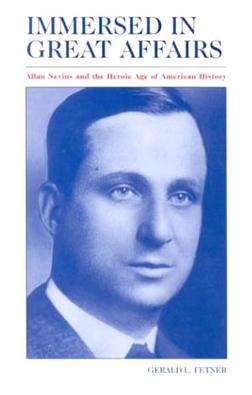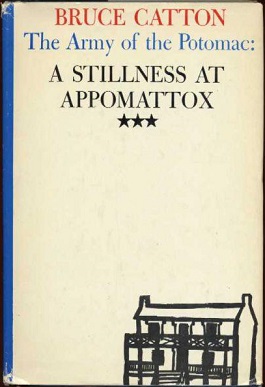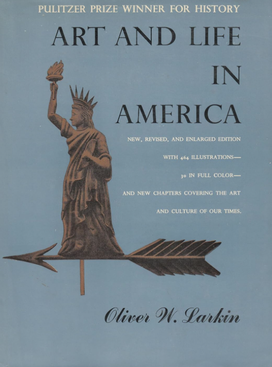Related Research Articles

The Pulitzer Prize for History, administered by Columbia University, is one of the seven American Pulitzer Prizes that are annually awarded for Letters, Drama, and Music. It has been presented since 1917 for a distinguished book about the history of the United States. Thus it is one of the original Pulitzers, for the program was inaugurated in 1917 with seven prizes, four of which were awarded that year. The Pulitzer Prize program has also recognized some historical work with its Biography prize, from 1917, and its General Non-Fiction prize, from 1962.

The Union, colloquially known as the North, refers to the United States when eleven Southern slave states seceded to form the Confederate States of America (CSA), also known as the Confederacy or South, during the American Civil War. The Union was led by Abraham Lincoln, the 16th president of the United States, and sought to preserve the nation, a constitutional federal union.

Joseph Allan Nevins was an American historian and journalist, known for his extensive work on the history of the Civil War and his biographies of such figures as Grover Cleveland, Hamilton Fish, Henry Ford, and John D. Rockefeller, as well as his public service. He was a leading exponent of business history and oral history.

James Ford Rhodes, was an American industrialist and historian born in Cleveland, Ohio. After earning a fortune in the iron, coal, and steel industries by 1885, he retired from business to devote time to historical research. He wrote a seven-volume history of the United States from 1850, initially published from 1893 to 1906 with an eighth volume added in 1920. Another book, A History of the Civil War, 1861–1865 (1918), won the second-ever Pulitzer Prize for History.
The following are the Pulitzer Prizes for 1929.
Justin Harvey Smith was an American historian and specialist on the Mexican–American War.

A Stillness at Appomattox (1953) is a non-fiction history book written by Bruce Catton. It recounts the American Civil War's final year, describing the campaigns of Ulysses S. Grant in Virginia during 1864 to the end of the war in 1865. It is the final volume of Catton's Army of the Potomac trilogy, having been preceded by Mr. Lincoln's Army (1951) and Glory Road (1952).
Fred Albert Shannon was an American historian. He had many publications related to American history, and he won the 1929 Pulitzer Prize for History for The Organization and Administration of the Union Army, 1861-1865 (1928).

Paul Herman Buck was an American historian. He won the Pulitzer Prize for History in 1938 and became the first Provost of Harvard University in 1945.
Kenneth W. Noe is an American historian whose primary interests are the American Civil War, Appalachia and the American South. He has most recently published The Howling Storm: Weather, Climate, and the American Civil War.
Lilacs for voice and orchestra is a musical composition by George Walker that was awarded the 1996 Pulitzer Prize for Music. The work, scored for soprano soloist and orchestra, was the unanimous choice of the Pulitzer prize jury. Walker was the first African-American composer to be awarded the prize.

A History of the Civil War, 1861–1865 is a history book by James Ford Rhodes. It won the Pulitzer Prize for History in 1918. The book is about the American Civil War.

The Life of the Mind in America: From the Revolution to the Civil War is a nonfiction history book by Perry Miller. It won the 1966 Pulitzer Prize for History. Miller writing about "Evangelical Basis", "The Legal Mentality", "Science". Book three was incomplete. The Life of the Mind was published posthumously.
The War with Mexico is a 1919 nonfiction book by Justin Harvey Smith. It won the 1920 Pulitzer Prize for History.

Art and Life in America is a book by Oliver W. Larkin published in 1949 by Rinehart & Company which won the 1950 Pulitzer Prize for History. It is a book which comprehensively deals about Art and artists in the United States.
The Uprooted: The Epic Story of the Great Migrations That Made the American People is book about European migrations into the United States by Oscar Handlin. It won the Pulitzer Prize for History in 1952.
Mary Wells Knight Ashworth was an American historian who wrote for Douglas Southall Freeman between 1945 and 1953. With Freeman, Ashworth worked on his seven volume biography on George Washington. After Freeman died before his biography was completed, Ashworth continued completing the biography as a member of Charles Scribner's Sons from 1954 to 1957.
The Road to Reunion, 1865–1900 is a nonfiction history book by Paul Herman Buck. It won the 1938 Pulitzer Prize for History.

A History of American Magazines is a 5-volume set of nonfiction books by Frank Luther Mott. Volumes II and III of the set won the 1939 Pulitzer Prize for History. The first volume was published in 1930, and the fifth volume was published posthumously in 1968.
Thomas Harry Williams was an American historian and author. For the majority of his academic career between the 1930s to 1970s, Williams taught history at Louisiana State University. While at LSU, Williams was a Boyd Professor of History from 1953 to 1979. Near the end of his tenure at LSU, the university created the T. Harry Williams Chair of American History. He also taught at extension schools in Wisconsin and at the Municipal University of Omaha.
References
- ↑ Brennan, Elizabeth A.; Elizabeth C. Clarage (1999). Who's who of Pulitzer Prize Winners. Greenwood Publishing Group. p. 284. ISBN 1-57356-111-8.
- ↑ Fischer, Heinz Dietrich; Erika J. Fischer (1994). American History Awards, 1917-1991: From Colonial Settlements to the Civil Rights Movement. Walter de Gruyter. p. 53. ISBN 3-598-30177-4.

